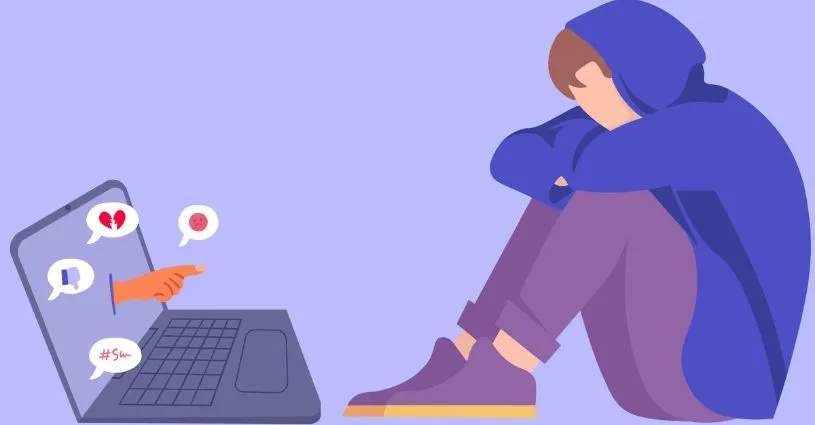In the vast landscape of online world, where anyone can hide under the tag of “anonymous”, creeps in a phenomenon that has become an unwelcome companion of our lives: online trolling. From social media platforms to comment sections and forums, the deliberate act of provoking, harassing, or spreading misinformation online has become disturbingly common. In this article, we dig deep into the shadows of cyberspace to unravel the complexities of online trolling, exploring its prevalence, impact, motivations, and potential solutions.
According to research conducted by Lewis Nitschinsk, Stephanie J. Tobin, Eric J Vanman, “Analyses also revealed that sadism and global trolling were positively associated with trolling in the chat room, but psychopathy showed no association. These results demonstrate the importance of both individual differences and the disinhibiting effects of anonymity when investigating the complex nature of trolling.” The widespread trolling behaviour emphasises the urgent need to address its detrimental effects on individuals and society at large.
Beyond the pixels on a screen, online trolling inflicts real and lasting harm on its targets, real human beings. Victims often endure emotional distress, anxiety, and even mental health issues as a result of relentless harassment.
Pranshu, a 16-year-old boy, from Ujjain, serves as a stark reminder of the devastating impact of cyberbullying
Pranshu was a vibrant and creative teenager with a passion for makeup artistry. His talent and flair for beauty transcended traditional gender norms, earning him recognition and admiration among his peers. However, behind the façade of his artistic prowess, Pranshu grappled with the harsh reality of cyberbullying—a reality that ultimately claimed his life. The talented makeup artist fell victim to relentless harassment and bullying stemming from gender-related prejudices ultimately succumbing to the weight of societal intolerance and cruelty.
Online trolling doesn't just affect individuals—it affects society as a whole. By promoting hostility, making divisions worse, and making civil conversations harder, trolling undermines the basis of democracy and community unity. It spreads negativity and distrust throughout the internet, creating a toxic environment everywhere.
Understanding the psychology of trolling is crucial to devising effective strategies for combating its proliferation and mitigating its impact. Motivations behind trolling are diverse. People do it for all sorts of reasons, like wanting to stir things up anonymously, having nothing better to do, strongly believing in their ideas, or just craving attention.
In the ever-evolving digital age, collaboration between online platforms, governments, civil society, organisations and academia is paramount in developing and implementing evidence-based interventions that address the systemic factors contributing to trolling. Transparent content moderation policies, robust reporting mechanisms and meaningful dialogue between stakeholders can foster trust and accountability in online spaces.
